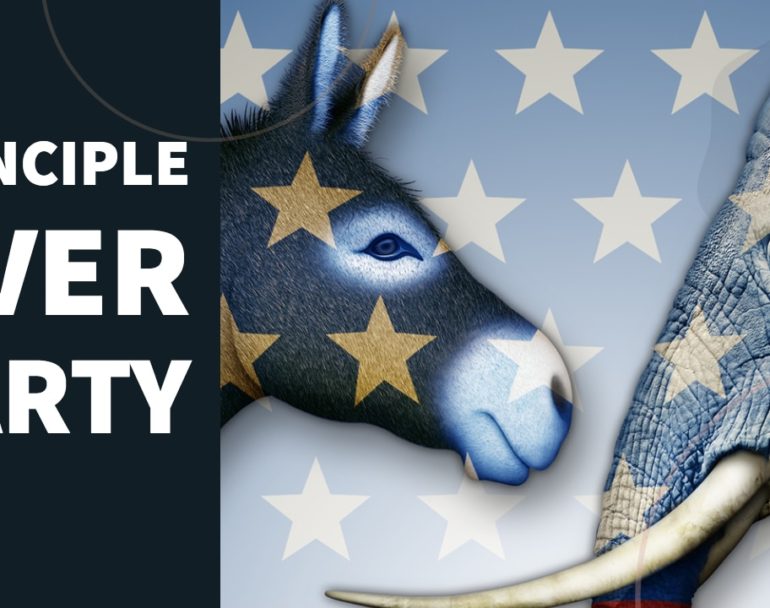
Principle over Party: All the Time
Michael Boldin
For us it’s principle over party – all the time.
There are many examples of the founders warning about the power of factions, which would certainly include the massive political parties of today.
Alexander Hamilton and James Madison discussed it in Federalist 9 and 10.
In his 1796 farewell address, George Washington famously warned of “The alternate domination of one faction over another.”
And in the New York ratifying convention, Melancton Smith said he’d only support his party “as far as is consistent with propriety,” letting other members know that his primary goal was to stand for his principles.
In short, if you’re dedicated to a politician or a political party rather than a foundational principle, you’ll always be led on the wrong path and help set foundation for what Washington called a “more formal and permanent despotism.”
In 1763, a young John Adams noted that “in every age” many of the best writers and speakers had wasted their skills in “foolish, deluded, and pernicious flattery” of one party, while engaging in “furious, prostitute invectives against another.”
Today, our view at the Tenth Amendment Center matches his rejection of this partisanship when he wrote:
“I would quarrel with both parties, and with every individual of each, before I would subjugate my understanding, or prostitute my tongue or pen to either.”